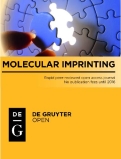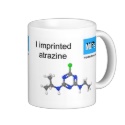|
|
Reference type: Magazine Article
Authors: unknown.
Publication date: 2002
Article title: Synthetic antibodies could act as chemical warfare agent sensors
Source: Chemical Engineering Progress
Volume: 98
Issue: (8)
Page numbers: 19-20
Alternative URL: http://proquest.umi.com/pqdweb?did=149248601&sid=1&Fmt=3&clientId=3224&RQT=309&VName=PQD
Abstract: Polymer-based "synthetic antibodies" currently being developed for medical applications may also provide a means for sensing and countering chemical warfare agents, according to Bernard Green, professor of pharmaceutical chemistry at Hebrew Univ. School of Pharmacy (Jerusalem) and chief scientific officer of Semorex (Baltimore, MD).
The synthetic antibodies, known as moleculary imprinted polymers (MIPs), have been designed to bind tightly to organophosphate and other toxins in a way that is equivalent to that of natural antibodies. MIPs are porous polymers with highly detailed imprints of a specific compound or molecule. Cavities formed by these imprints are highly reactive, effectively trapping the targeted molecules. "The very high affinity of these super-selective MIPs enables the development and manufacture of sensors that can detect individual chemical warfare agents, and distinguish them from pesticides and other commercial products that might be found in a normal environment," Green says. "Protective membranes and fabrics, or sponges for cleaning up after chemical warfare attack, are some of the other potential applications."
Author keywords:
|


 atrazine template mug ball and stick model
atrazine template mug ball and stick model







 multi MIPs logo beer stein
multi MIPs logo beer stein







 mips logo apron
mips logo apron






